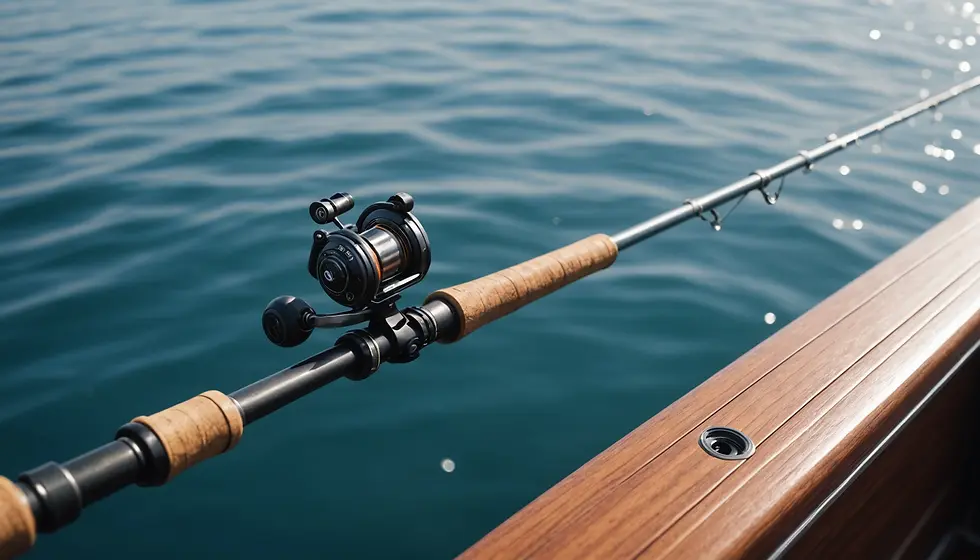Uncovering the Untold Success of Sustainable Fishing: How Responsible Angling is Preserving Marine Ecosystems
- Flying Fishman

- Feb 1, 2025
- 4 min read
In a world where oceans are critical for environmental balance, sustainable fishing stands as a vital solution for protecting marine ecosystems. With over 70% of our planet's surface covered by water, the health of these vast ecosystems directly influences biodiversity, climate stability, and human health. Unfortunately, harmful fishing practices have led to significant declines in fish populations and degrading habitats. This blog post explores the numerous advantages of sustainable fishing, outlines effective responsible angling techniques, and showcases inspiring initiatives and organizations working to conserve our oceans through fishing.
Benefits of Sustainable Fishing Practices
Sustainable fishing offers numerous benefits that positively impact both ecosystems and local economies.
First and foremost, sustainable fishing helps maintain vibrant fish populations, ensuring they can reproduce and thrive. Techniques like catch and release and selective harvesting significantly reduce pressure on endangered species. For instance, studies indicate that regions implementing catch and release strategies experienced up to a 50% increase in targeted fish populations over five years, demonstrating their effectiveness and positive ecological impacts.
Sustainable fishing also fosters biodiversity. By using methods that limit bycatch—the unintentional capture of non-target species—anglers can protect vulnerable marine life, including endangered species. For example, the adoption of circle hooks has reduced bycatch by over 30% in various fisheries, allowing species such as sea turtles and sharks to survive and thrive again.
Additionally, sustainable fishing practices have essential economic benefits. The fishing industry generates around $270 billion annually globally, primarily benefiting coastal communities. By committing to sustainable methods, these communities can secure long-term livelihoods while ensuring the health of marine resources. Sustainable fisheries not only stabilize fish stocks but also enhance ecosystem health, thus supporting commercial, recreational, and subsistence fishing.
Techniques for Responsible Angling
Implementing responsible angling techniques is essential for successful sustainable fishing.
One key technique is catch and release, allowing anglers to significantly reduce their impact on fish populations. When practicing this method, it is vital to ensure that fish experience minimal stress. Techniques like using barbless hooks and reducing handling time can enhance survival rates. Research suggests that proper release practices can lead to survival rates exceeding 90% for some fish species.
Another important technique is selective fishing, where anglers target species that are abundant while avoiding those that are overexploited. This helps to conserve sensitive populations and maintain the overall health of the ecosystem. Anglers can consult local fishing reports or apps designed to indicate healthy fish populations.
Sustainable bait and gear also contribute to responsible practices. Choosing ethically sourced bait can minimize the impact on vulnerable species. Utilizing tools designed to reduce bycatch, like specialized nets or gear that allows smaller non-target fish to escape, can make a substantial difference.
Practicing environmental stewardship is vital as well. Anglers should follow local regulations that promote sustainable practices, engage in clean-up efforts, and advocate for marine conservation. By educating themselves and others on the importance of protecting marine ecosystems, anglers can play a part in fostering a culture of responsibility.
Initiatives and Organizations Promoting Marine Conservation Through Fishing
Numerous initiatives and organizations focus on promoting marine conservation through sustainable fishing.
The Marine Stewardship Council (MSC) is a notable organization working globally to ensure that fisheries meet strict sustainability standards. They certify fisheries that align with environmental criteria, empowering consumers to make informed decisions when buying seafood. Since the MSC's inception, certified fisheries have improved their stocks by an impressive 18% on average.
Another impactful initiative is Fish Forever, which empowers coastal communities to manage their fisheries sustainably. By involving local fishers in management practices, they have seen fish populations grow by up to 60% in participating regions, illustrating the benefits of community-led restoration efforts.
The Ocean Conservancy is also making strides in policy advocacy and marine protection. Their initiatives aim to combat overfishing, safeguard critical habitats, and promote sustainable practices. By partnering with local communities, Ocean Conservancy emphasizes the need for implementing sustainable fishing on a global scale.
In addition, educational programs and workshops have emerged to raise awareness about sustainable fishing. These programs provide both novice and experienced anglers with the knowledge necessary for responsible fishing, making them an essential resource for fostering a culture of sustainability.

Protecting Our Oceans for the Future
The impact of fishing on marine ecosystems requires urgent attention. However, through sustainable fishing practices, responsible angling techniques, and joint efforts from organizations and communities, we can change the tide. By embracing sustainability, we can preserve fish populations and their habitats while securing the future of our oceans.
As individuals, we each have the power to create change—through our fishing choices, supporting conservation efforts, or raising awareness about the importance of sustainable practices. Every action matters. Let's commit ourselves to conservation and work together to create a thriving marine environment for future generations.
By dedicating ourselves to responsible angling and sustainable fishing practices, we can pave the way for a brighter future for our oceans—one that supports biodiversity, bolsters livelihoods, and honors the beauty of marine ecosystems. Together, we can make a meaningful difference!



